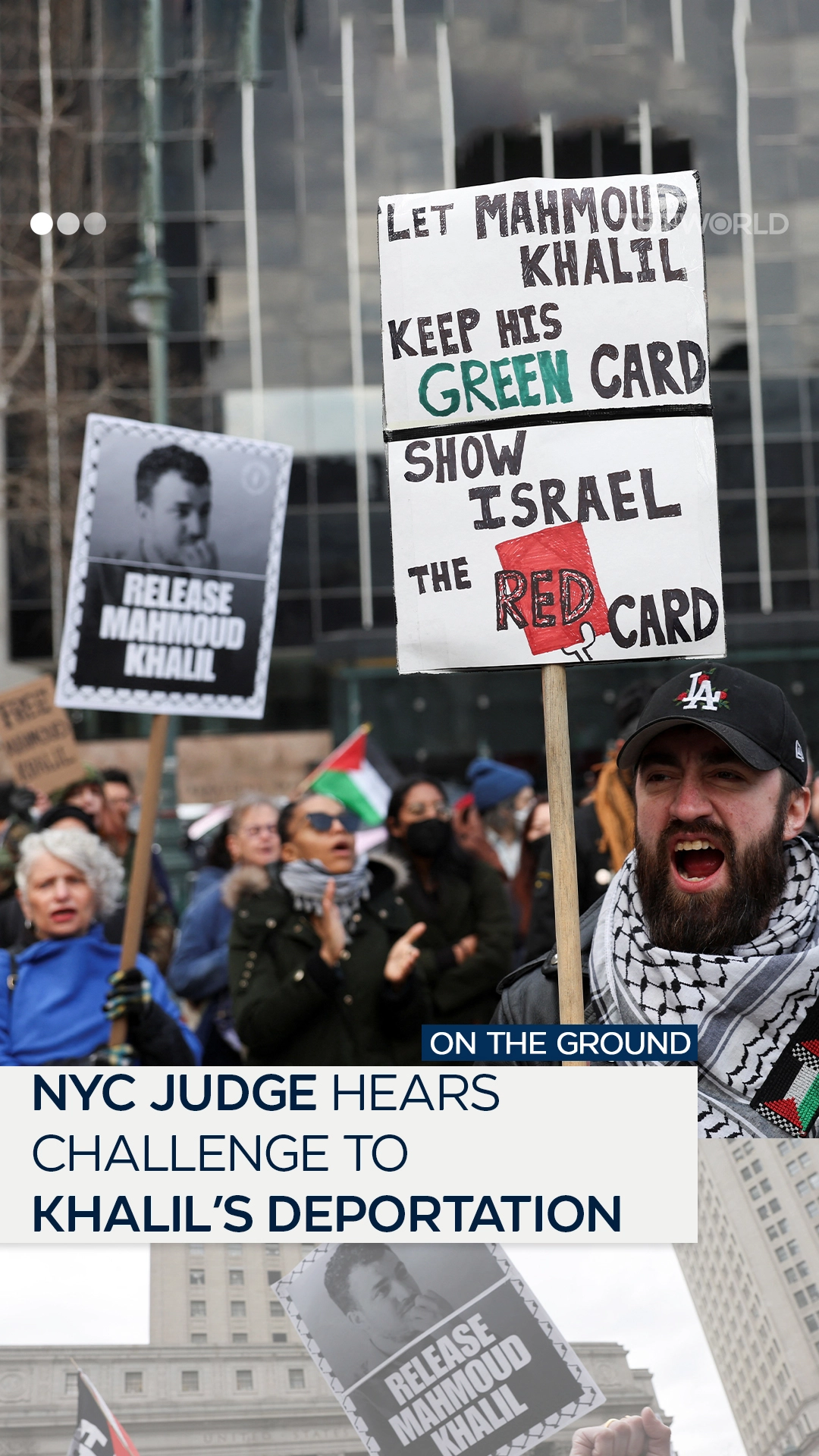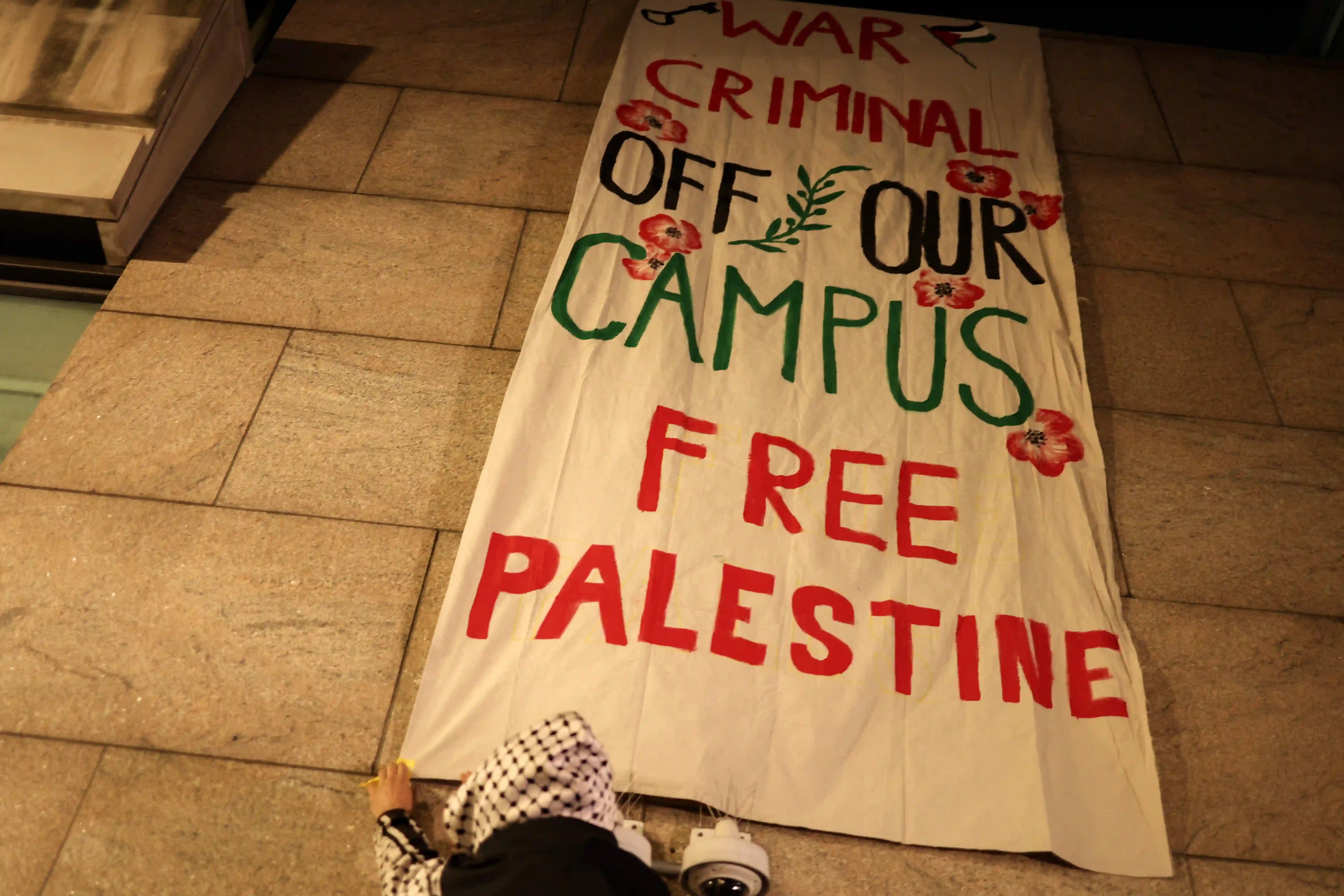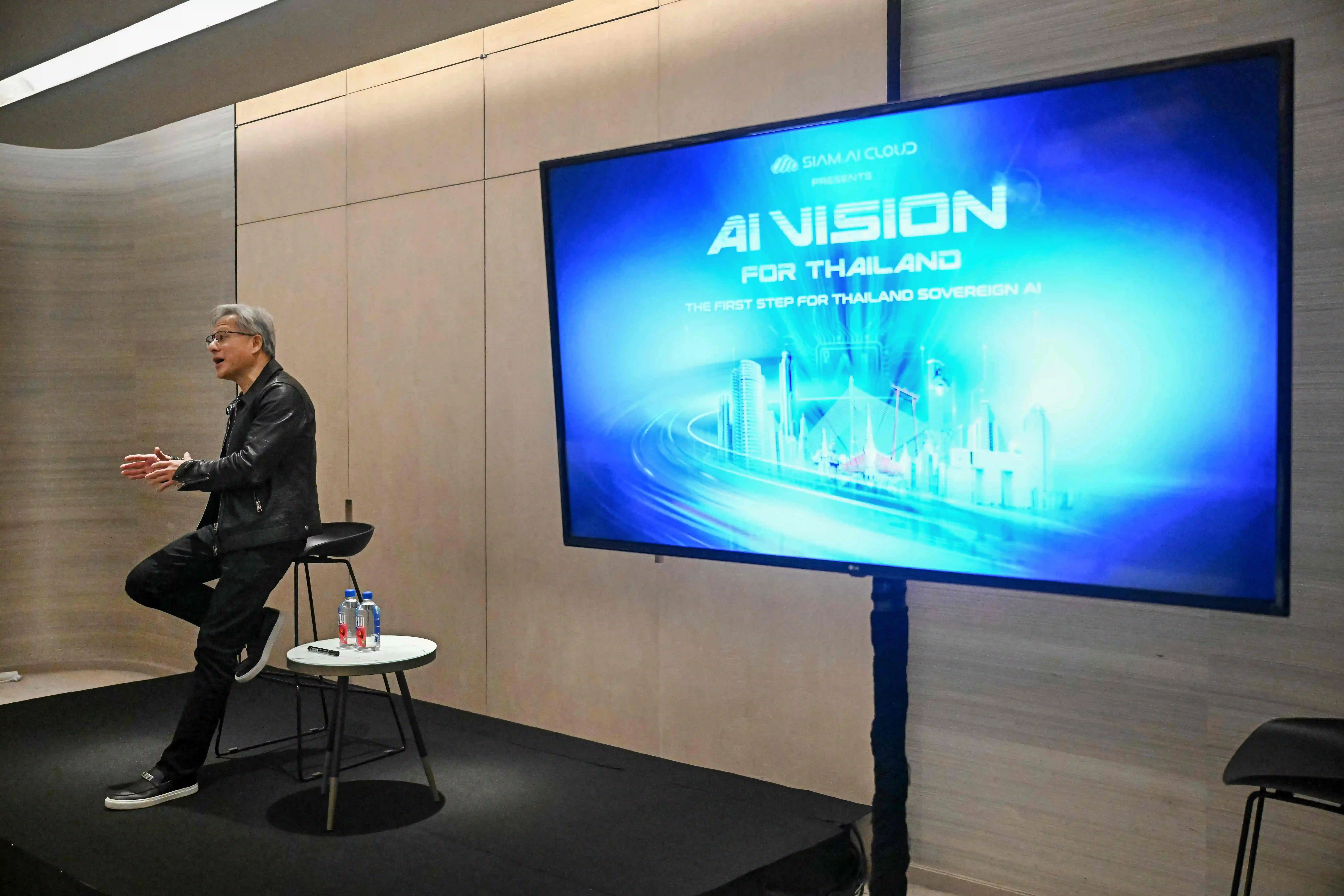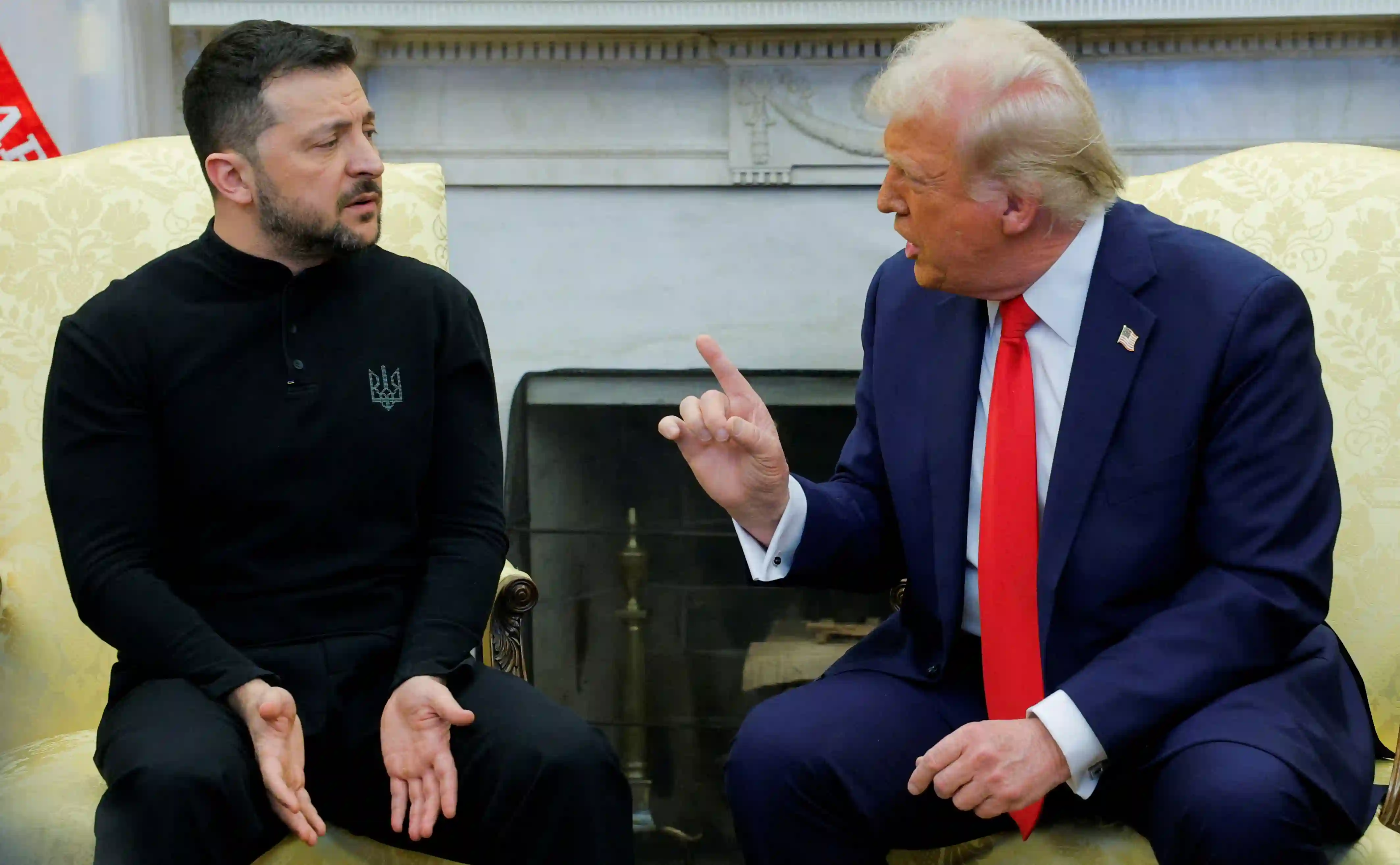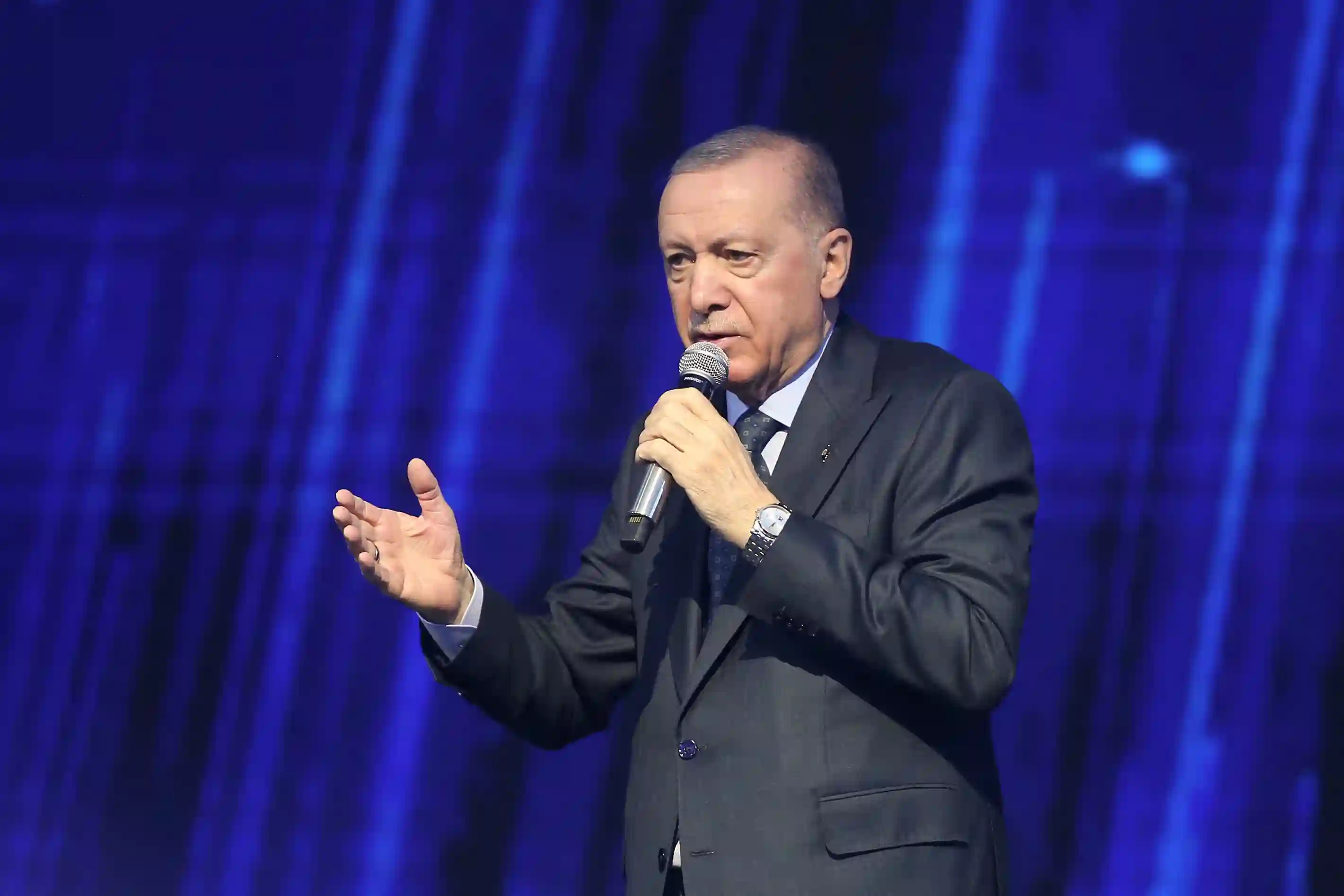“To all di foreign pipo wey join di pro-jihadist protest, we dey warn una: by 2025, we go find una, and we go deport una.”
Na so e dey for di White House website wey talk about di executive order wey US President Donald Trump sign on January 29. Di order, as di US government talk, na to take “strong and new steps” to fight anti-Semitism for university campuses and public places.
For di fact sheet wey follow di order, Trump accuse di “foreign pipo” say dem dey “celebrate Hamas’ mass rape, kidnapping, and killing,” dey block synagogue, attack worshippers, and destroy American monuments and statues.
But critics dey talk say di way di order take broad and di way dem wan implement am fit be attack on pro-Palestinian activism and free speech rights for US.
Targeted crackdown?
Just few weeks after dem sign di order, on March 10, dem arrest Mahmoud Khalil, one Palestinian student activist for New York City’s Columbia University. Trump go social media call Khalil “Radical Foreign Pro-Hamas Student,” even though Khalil na permanent US resident wey get green card and dem never charge am for any crime.
Di arrest make civil rights organisations, lawyers, and academics vex well well, as dem talk say e dey against First Amendment rights. Up till now, di Department of Homeland Security (DHS) never give clear reason why dem detain Khalil.
One post for X talk say “Khalil lead activities wey align with Hamas, wey dem don call terrorist organisation.” Di decision dey based on one immigration law wey dem no dey use often, wey give Secretary of State power to talk say one foreigner no fit stay for US because e no dey good for foreign policy, so dem fit deport di person.
But di White House never show any strong evidence against Khalil, and one federal judge don stop di deportation for now, as e talk say di case no get enough legal ground.
ADL influence
Di federal government dey take strong action against pro-Palestinian student activism, but di way di matter dey go for campuses dey show say pro-Israel lobbying groups dey influence di situation.
One of di big groups na di Anti-Defamation League (ADL), wey many people sabi as di main pro-Israel advocacy group for US domestic policy. Just two days before dem arrest Khalil, ADL CEO Jonathan Greenblatt talk say e don dey work with Columbia University officials to fight anti-Semitism for campus.
“Just yesterday I go campus go meet Jewish students and hear wetin dem dey face,” Greenblatt write for X on March 8. E still call Columbia make dem work with state and federal law enforcement to make sure say students wey dem accuse of antisemitic behaviour face di law.
Two days later, dem arrest Khalil, and e don make people dey ask whether di lobbying from ADL influence di government response to pro-Palestinian activism.
Secretive disciplinary system
When dem arrest Khalil, Columbia’s Office of Institutional Equity (OIE) dey already investigate am. Dis OIE na one secretive body wey dem set up to handle harassment and discrimination complaints.
But reports dey show say di OIE no dey neutral, as e dey act like prosecution system wey dey target students wey dey talk about Israel-Palestine matter. On March 4, Drop Site News talk say students wey dem accuse must sign non-disclosure agreements (NDAs) before dem fit see di evidence against dem, so dem no go fit talk about di case outside.
Di OIE even change di Civil Rights Act to treat criticism of Israel as “discriminatory harassment,” wey align with di ADL policy goals. ADL na di same group wey dey push for di controversial IHRA definition of anti-Semitism, wey many people don criticise say e dey mix anti-Semitism with anti-Zionism.
“ADL don dey mix criticism of Israel with anti-Semitism for long. Na why many people no dey trust di data wey dem dey give again,” Zachary Foster, one historian of Palestine and di Middle East, tell TRT World.
Foster talk say di influence don affect how Columbia University dey handle student activism. “E dey scary because e mean say to criticise one apartheid state wey dey face genocide trial for di ICJ no dey acceptable for Columbia again,” e talk.
Public records show say ADL dey lobby US lawmakers to enforce di IHRA definition wey critics don call “dangerous” and “politicised.” Drop Site News report say di OIE for Columbia dey target students wey dey put posters, share social media posts, or organise protests against Israel.
“Di posters talk things like ‘Condemn Israel,’ and ‘Israel na Terrorist State,’ but Columbia dey call am discriminatory harassment under Civil Rights Law,” one student talk. “If dem write ‘Kill Zionists’ or something like dat, I go understand, but e no be like dat.”
ADL’s history of surveillance
Di ADL role for campus policy na part of di long history of surveillance and influence. Since di 1970s, dem don dey push di idea of “new anti-Semitism,” wey talk say anti-Zionism and some criticism of Israel na anti-Semitism.
For 2022, Greenblatt talk say no difference dey between anti-Zionism and anti-Semitism, wey make Jewish groups and even ADL staff vex. “Anti-Zionism na anti-Semitism,” Greenblatt talk for di ADL Virtual National Leadership Summit.
E still call Students for Justice in Palestine and Jewish Voice for Peace “radical left” extremists, and Columbia University don ban dem from hosting events from 2024.
ADL website talk say dem dey “shape di work of policymakers” for federal, state, and local levels through “bipartisan advocacy.” Di organisation don increase dia lobbying efforts, spending $1.4 million for 2004 to push dia legislative agenda.
Dis dey happen as ADL don face controversy before, like di 1993 ADL spying scandal, where dem dey illegally monitor over 10,000 people and 950 organisations, including Arab-American groups, Black civil rights organisations, and even progressive Jewish groups.
Di way dem dey crack down on pro-Palestinian activism for Columbia University—and other places—dey raise serious questions about how pro-Israel lobbying dey affect US campus policies, free speech, and civil rights enforcement.
Di line between fighting anti-Semitism and suppressing political dissent don dey blur well well.
